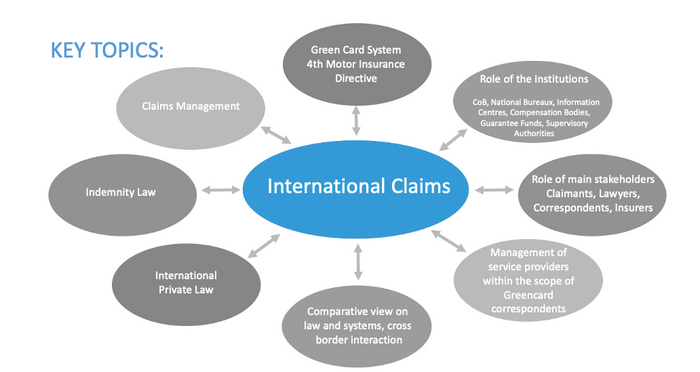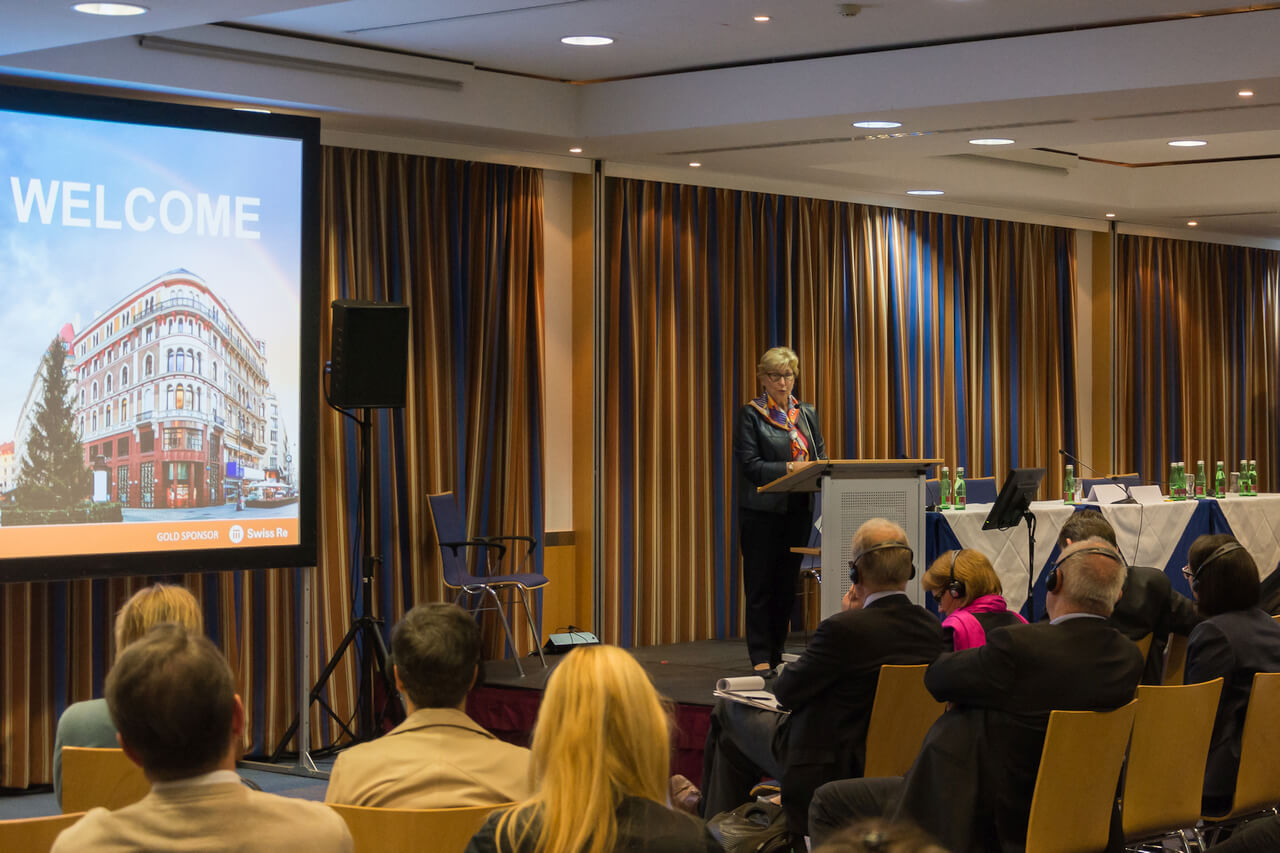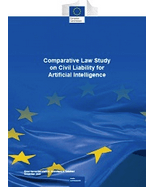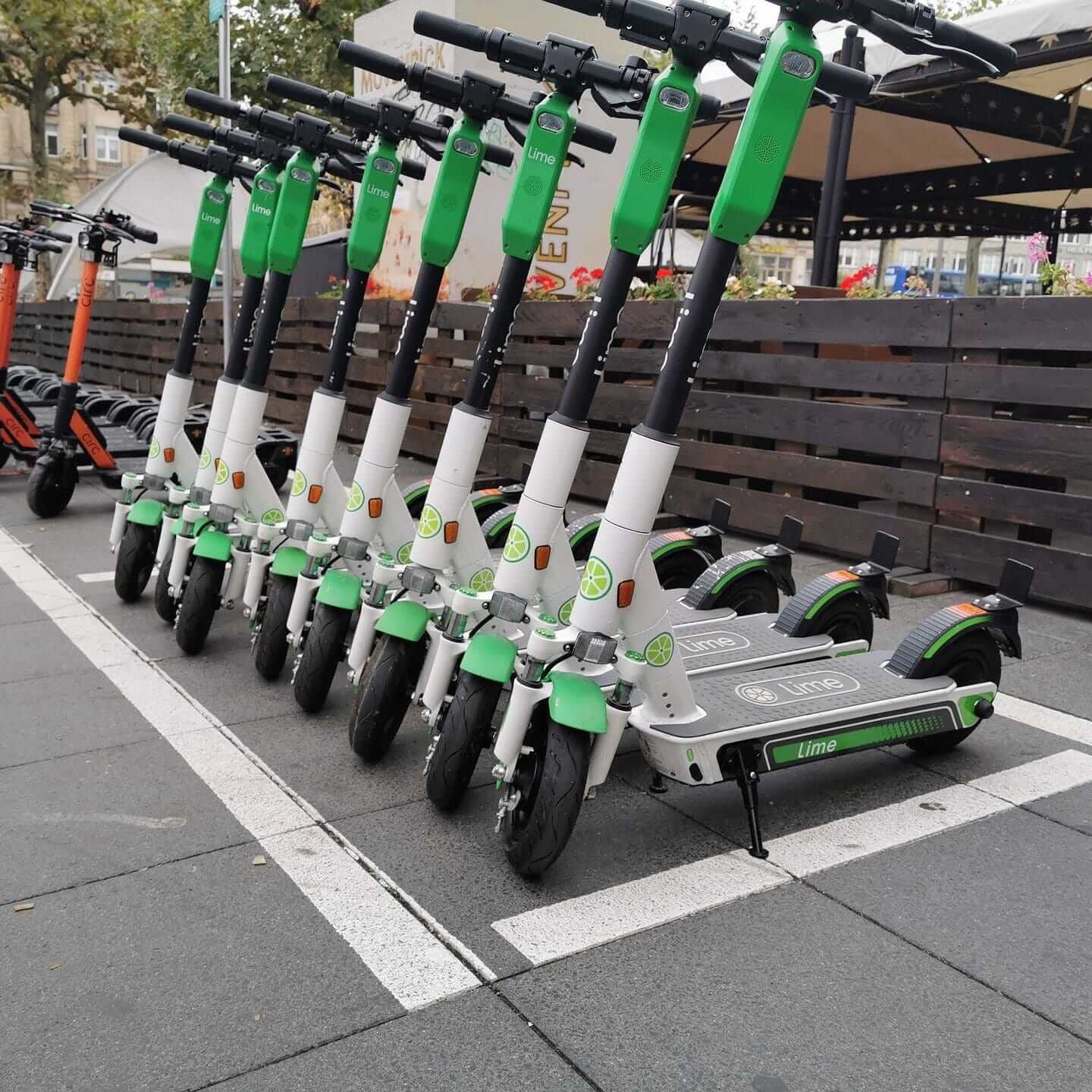Conferences
Law Days/ Online Conferences
Since more than 20 years, the IETL has organised a major European conference on traffic law topics, especially on cases of international contexts, every year in early October. In the meantime, other topics have been added, such as the use of artificial intelligence for autonomous driving, the development of liability law, new vehicles such as e-scooters, travel law, so that the conferences are increasingly becoming a forum for legal issues relating to all areas of mobility. Here, there is intensive discussion about the legal regulations and development of European legislation and jurisdiction on transport and mobility development between representatives of legislators, science, practice and institutions such as the Council of Bureau or the UN.
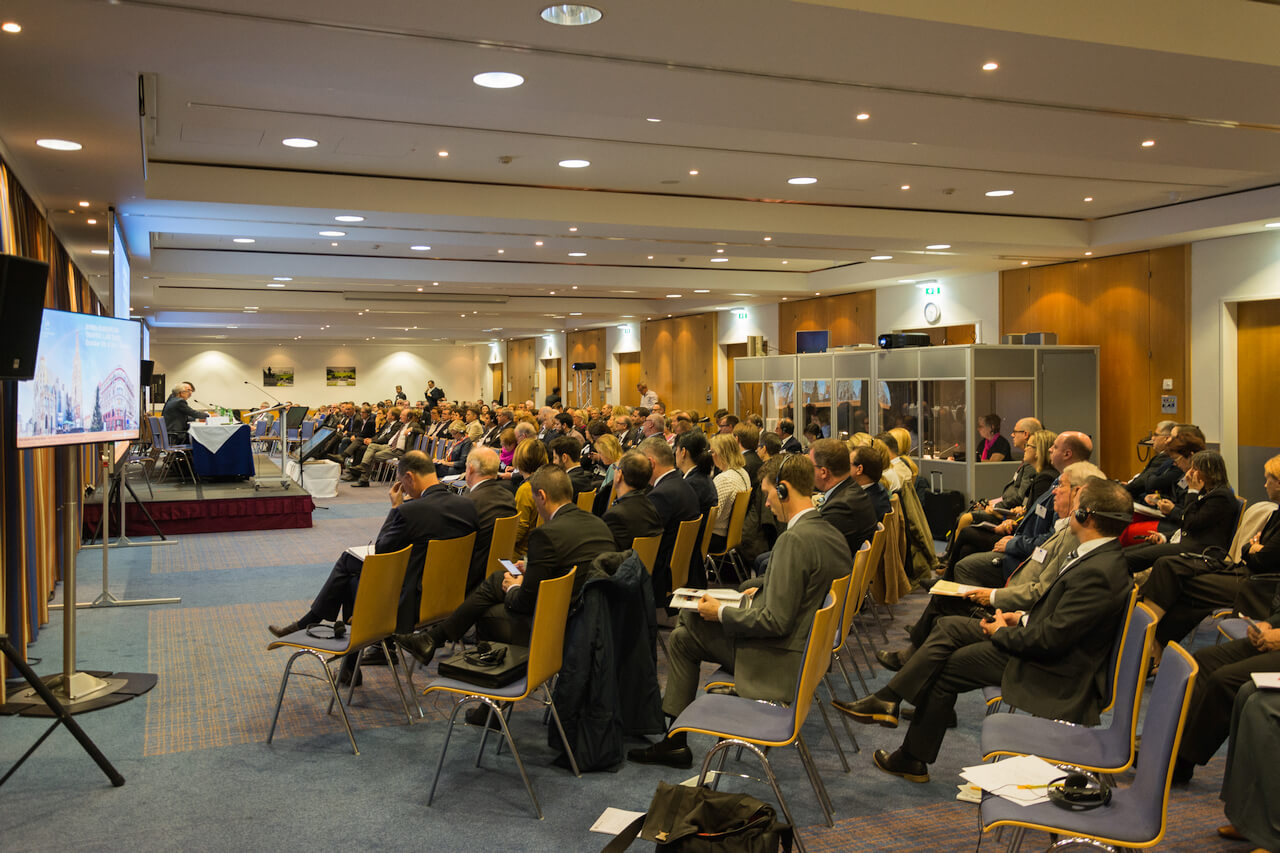 |
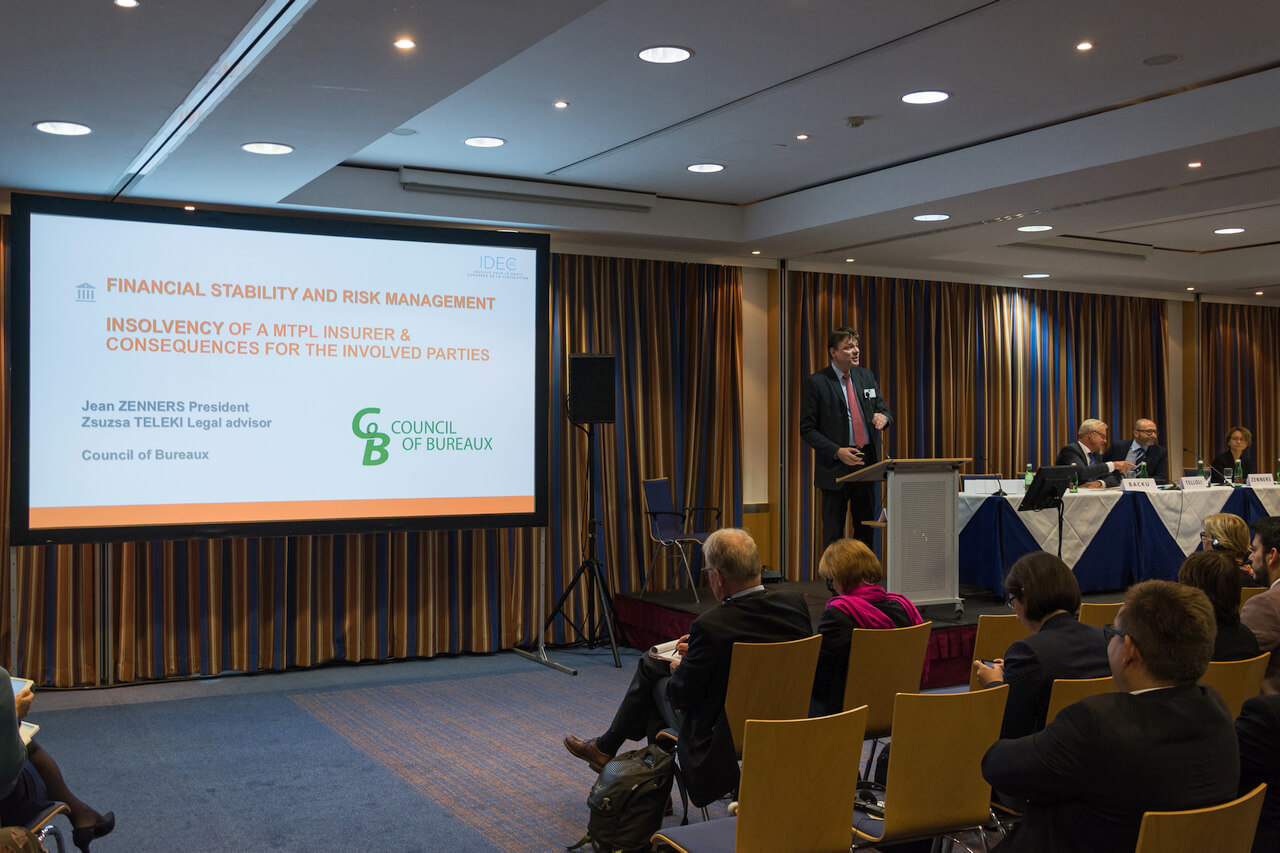 |
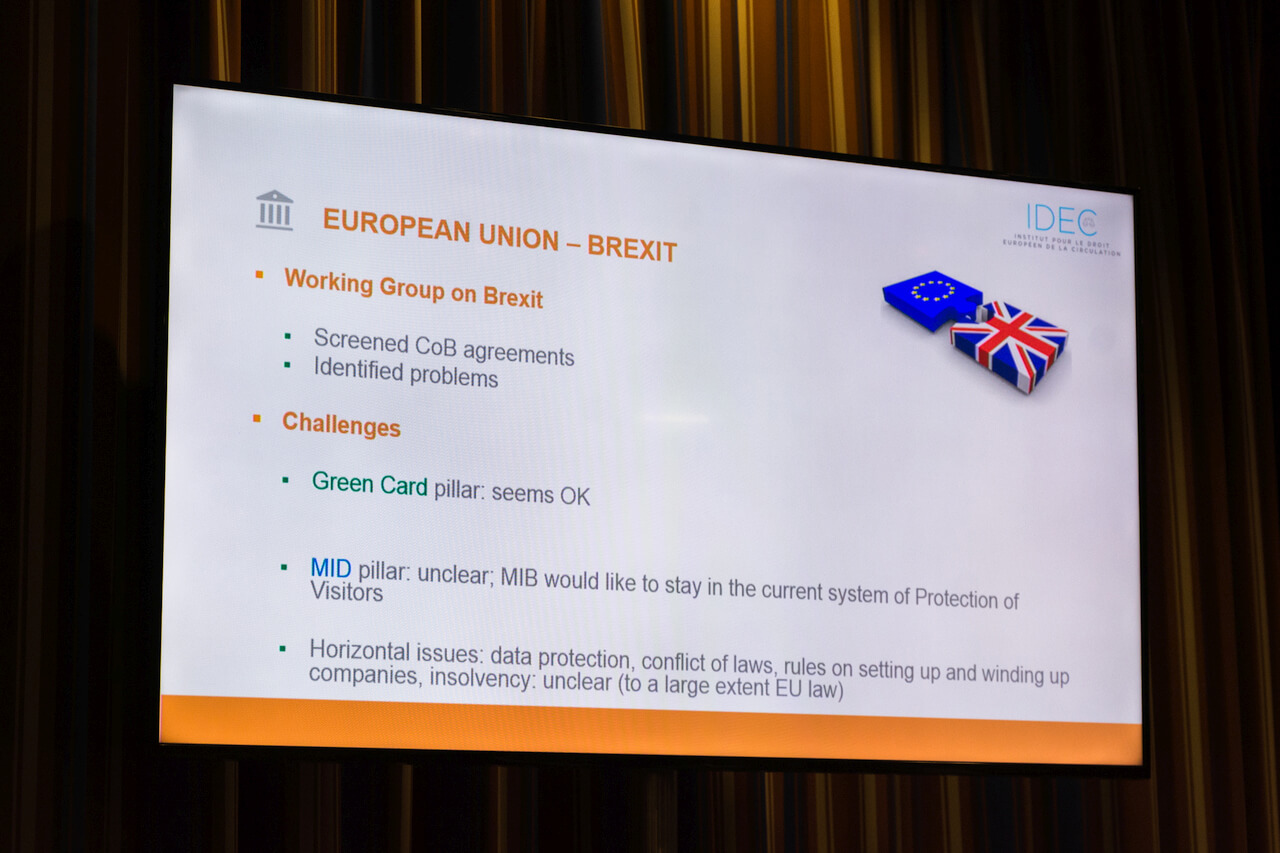 |
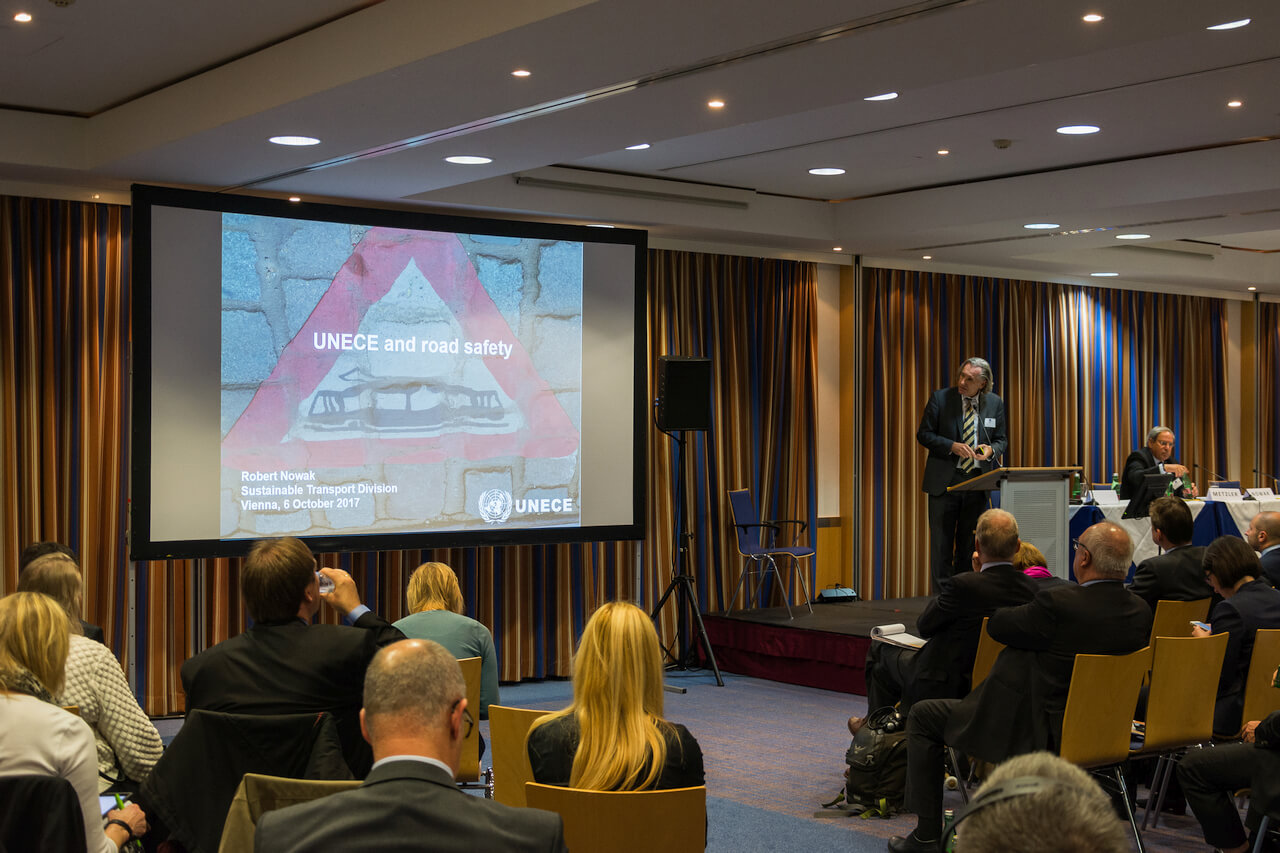 |
During the Corona pandemic, the conferences had to be held as video conferences. In 2022, a face-to-face event will again be held in Berlin in October.
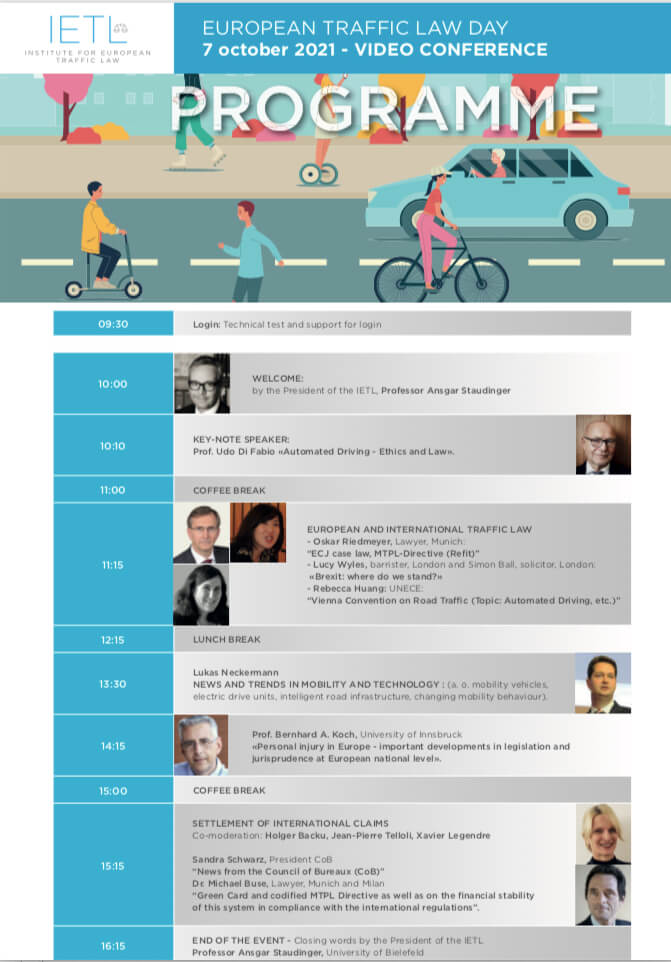
Online Seminars
In addition, since 2020, an annual online seminar has been held exclusively for members in the spring, dealing with current topics such as the development of the case law of the European Court of Justice on accidents in cross-border traffic, international agreements in road transport or travel law.
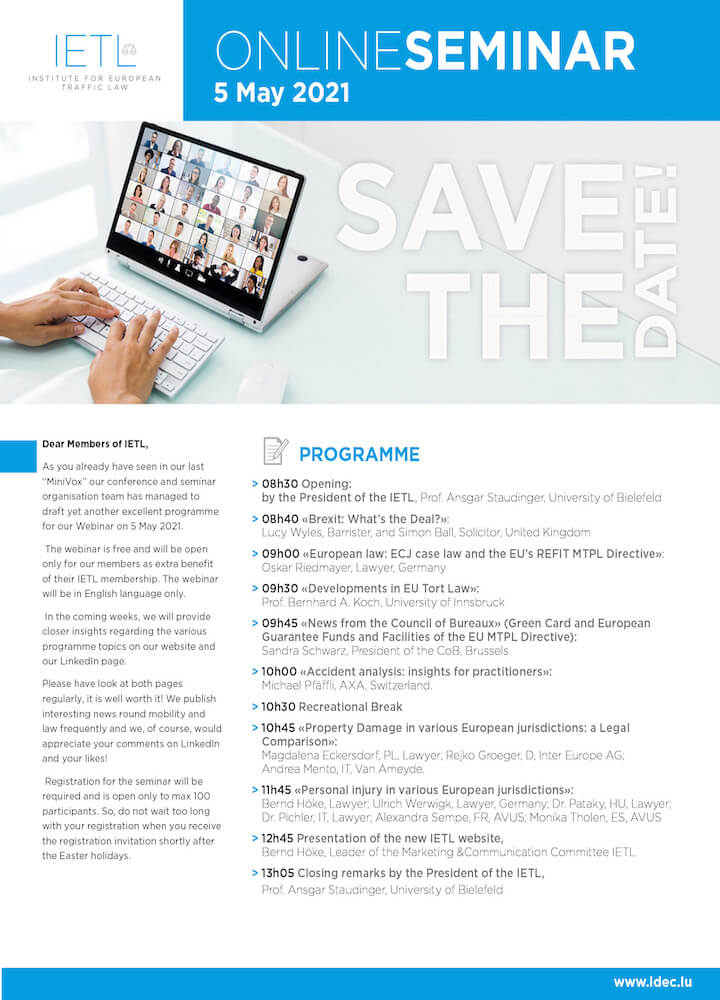
WHAT´S NEW IN EUROPE
EU Comparative Law Study AI 2021
This study will analyse how damage caused by artificial intelligence (AI) systems is allocated by the rules of tortious liability currently in place in the EU, and whether – and if so to what extent – the national tort law regimes differ in that respect.
Motor Insurance Directive:
The European Parliament Plenary debated and voted on the Revised MID on 21 October 2021. Following the debate and adoption by the Parliament, the Council may formally adopt the text at the ECOFIN Council scheduled 9 November 2021 (tbc). Once adopted by the co-legislators, the text will need to be transposed into national law within 24 months from the date of entry into force.
For more information:
Product Liability Directive:
On 18th October 2021, DG GROW launched a public consultation on the revision of the PLD (Civil liability – adapting liability rules to the digital age and artificial intelligence).
For more information:
Hyperloops in Europe
According to the plans of some private startups, the hyperloop transportation could connect some European regions in the future. This idea is pushed by some European countries and by the EU-project Hypernex, which accompanies the further development and strengthens the European cooperation of the various projects. For more information, visit the homepage of Hypernex at http://hypernex.industriales.upm.es/
Hyperloops are capsules which move in a vacuum tube. Cause the hyperloop is in an almost air gauge tube, the transport of people and goods should be possible with very little resistance. Furthermore, the vehicle should float in the air, which means that no limits are set due to the wheels. This technique should make it possible, to travel with a speed of up to 1.000 kph.
The technique is already being tested in Europe. There is a full-scale system with a tube in Toulouse, where tests are carried out. Also, the European Hyperloop Center (EHC) has opened in 2019 in Groningen. However, there is currently no use of hyperloops for people or goods traffic.
Nevertheless, the goals are ambitioned. According to a plan of a startup, Hyperloops should be used as early as 2025 to transport goods. Over time, passenger connections will also be established. Some pioneers see the possibility of connecting the big Germany cities by a circular route through Germany. Comparable plans existing also in the Netherlands. Moreover, some big European metropolis should be connected by Hyperloop, for example Bratislava and Vienna or Tallinn and Helsinki.
The hope with the introduction of Hyperloops is, that it will enable fast, environmentally friendly transport of peoples and goods. But there is also some skepticism regarding the technical feasibility and the security of Hyperloops.

Hot off the press ECJ - Passenger rights in maritime transport
Judgment of 2 September 2021 in Case C-570/19 Irish Ferries
The Court of Justice clarifies a number of provisions of the regulation concerning passengers’ rights when travelling by sea and inland waterway. The re-routing and compensation obligations in the event of cancellation of a service are proportionate to the objective pursued by the regulation.
A request for a preliminary ruling was made in the course of proceedings between the company Irish Ferries Ltd (‘Irish Ferries’), an Irish shipping company, and the National Transport Authority (Ireland) (‘NTA’), concerning the application of Regulation No 1177/2010 1 to the cancellation of a season of sailings scheduled by Irish Ferries between Dublin (Ireland) and Cherbourg (France).
More information: https://curia.europa.eu/jcms/jcms/p1_3577306/de/
France:
Obligation to carry chains or fit winter tyres comes into force from 1 November 2021
In order to continue to improve the safety of road users in winter, the obligation to carry snow chains in the boot or to fit winter tyres to the vehicle will apply from 1 November 2021 in departments located in mountainous areas.
For more Information please have a look to our Newsletter October 2021
Obligation in France to inform about the blind spot
From January 1st this year, vehicles with a total weight from 3.5 tons have to be fitted a sign which informs about the blind spot. A violation will result in a fourth class fine of minimum 135€, in the worst case even 750€.
Just as domestic cars, drivers of vehicles registered abroad who only use French roads for their transit must comply with the labelling requirement. Only agricultural and forestry vehicles as well as winter service vehicles and service vehicles on motorways and expressways are exempt from the obligation. That means despite efforts by the French motorhome associations, larger motorhomes must also confirm with this regulation.
It is expected that the sticker is fixed in a high between 0.9 and 1.5 meters. In addition, they must be placed in such a way that the visibility of the truck license plate, the lighting and the signalling devices and the driver’s field of vision are not impaired. There is the possibility to buy a legally complaint sign at the French Association of International Road Transport (AFTRI).
The regulation does not provide for an exception for vehicles which have already a mark. Only in a transition period of 12 months there will be no punishment for the drivers of vehicles with a comparable labelling.
This new requirement is intended to improve the mobility for other traffic members. Especially the danger from veering truck for pedestrians and cyclists should be lowered. Through the sign other traffic members should be more sensitized for this danger, so that they will stay in the save zone.
In Germany is also a new regulation to promote a higher traffic security. The bonus for scrapped trucks is tied to the installation of a turning assistant. The turning assistant recognize a danger and informs the driver or automatically brakes the truck. Currently there is no mandatory introduction of the turning assistant.
Regulation Art. R313-32-1 Code de la Route.
More Information: https://www.legifrance.gouv.fr/codes/article_lc/LEGIARTI000042534807/2021-01-01
GB car sticker to be replaced by new 'UK' version
As of September 28th 2021, British motorists driving their home registered vehicle must ensure that their GB car sticker is replaced by one displaying ‘UK’ instead.
The current sticker used on the back of vehicles will no longer be valid from September 28. Instead, motorists will have to replace it with a UK sticker to drive on foreign roads.
Those with a GB number plate will also need a new sticker, or have to order a fresh number plate with the UK symbol.
Although no official reasons have yet been outlined, the move is thought to be a show of solidarity with Northern Ireland in the wake of Brexit. GB stands for Great Britain, which comprises England, Scotland and Wales, whereas UK stands for the United Kingdom, which comprises Great Britain and Northern Ireland.
More information: https://www.rac.co.uk/drive/news/motoring-news/gb-car-sticker-to-be-replaced-by-new-uk-version/
New Catalogue of fines from 9 November 2021
The Federal Council has approved the new Ordinance on the Catalogue of Fines (BKatV). The new BKatV was published in the Federal Law Gazette on 19 October 2021. The penalties have been drastically increased in many cases.
It will therefore come into force on Tuesday, 9 November 2021 at 0:00 hours:
- Offences up to and including Monday, 8 November 2021 23:59 hrs. will therefore still be punished according to the old catalogue of fines.
- Offences committed after Tuesday, 9 November 2021 at 0:00 hrs. will then be punished in accordance with the new regulation on the catalogue of fines.
For more information: https://www.adac.de/news/einigung-bussgeldkatalog/
Increased additional fee in Hungary violates German ordre public
The decision from 4.2.2021 by the regional court in Munich (31 S 10 317/20) was rendered in a dispute over additional fees for unpaid road tolls. The Hungarian regulations provide, that users of the highways must buy a vignette. If they have not done it, they must pay a top-up fee which is five times higher than the basic price. When there is no payment within 60 days, an increased additional fee is owed. This one is again four times higher than the top-up fee. The appeal court only has to check the last fee for its legitimacy.
It was initially unproblematic that the defendant only rented the car and did not drive it itself. The court in Nürnberg-Fürth has already ruled at 30.7.2019, that owner liability does not violate the ordre public (16 S 9176/18). A violation of domestic basic principles fails because German civil law also includes owner liability.
In the second point, that the court had to determine was according to which regulation the applicable law is to be assessed. It firmly decided that contrary to the plaintiff’s opinion, there was no contractual relationship between claimant and the vehicle rental company. The driver did not act on behalf of the defendant and the fact that the rental car company has not done anything to prevent a further journey after the first payment requests have been received does not establish a contractual relationship. As a result, the Rom II regulation is applicable.
Within this the question arose whether there is a violation of Art. 26. This is the case with claims for damages if they go much further than necessary to adequately compensate the injured person or obviously serve purposes other than adequate compensation for the injured person. The German court arguments that there is a violation of Art. 26 Rom II regulation. By that the increased additional fee is four times higher than the top-up fee, which itself is just as five times higher than the basic charge, no connection to the actual damage can be identified. According to this line of reasoning, the additional fee is not enforceable at a German court.
The judgment is not yet final and can still be reviewed by the German high court.
The Federal Administrative Court (BVerwG) in Germany has cleared the way for the construction of the controversial Fehmarnbelt Tunnel
In Denmark, building permission for the Fehmarnbelt Tunnel had existed for a long time, now it is also clear in Germany: the tunnel can be built. The court dismissed all complaints against the planning approval decision for the German section of the project. The judges ruled that the project did not violate nature conservation law and that the planners had not made any other errors in consideration (Urt. v. 03.11.2020, Az. 9 A 7.19 u.a.).
The subject of the planning approval decision of 31 January 2019 is a combined road and rail tunnel which will connect the island of Fehmarn (Germany) with the Danish island of Lolland. The tunnel is around 18 km long; about half of this is accounted for by the German part of the project. The structure is up to 47 m wide and up to 13 m high. It will be assembled from prefabricated elements. These will be manufactured in a factory specially built for this purpose on Lolland and then lowered into a trench dug on the seabed. The tunnel includes a four-lane road, a two-track electrified railway line and a maintenance and evacuation corridor in separate tubes. According to the German-Danish state treaty of 2009 on which the planning is based, Denmark will build and operate the fixed link across the Fehmarnbelt at its own expense. For this purpose, Denmark has founded a private company. The costs are to be refinanced through tolls and rail user charges.
The court had to decide on a total of six complaints. Two nature conservation associations, several ferry companies and the town of Fehmarn had opposed the project. They doubted the traffic forecasts for the railway and car tunnel and feared serious environmental impacts, for example on porpoises, reefs and eider ducks.
However, the objections did not convince the federal judges. The building project did not lack a justification in planning terms. According to the court Germany and Denmark had agreed on the project in an international treaty. The need for the tunnel was thus legally regulated. Therefore the Federal Administrative Court is bound by this. The binding force only ceases to apply if the determination of need is evidently unobjective or the circumstances have changed so fundamentally that the intended planning objective cannot be achieved under any circumstances, not even approximately. The court declared that such an exceptional case does not exist here.
Furthermore the challenged planning approval decision does not infringe nature conservation law. To protect the harbour porpoises living in the Fehmarnbelt from construction noise, a precautionary limit value was set that is significantly below the source level of large ships and ferries. Investigations revealed that the implementation of the project will not cause any significant risk of disturbance or even killing of resting birds. With regard to the reefs, the planning also takes sufficient account of biotope protection. Insofar as reefs in the immediate vicinity of the tunnel route were only identified after the zoning decision was issued, the project may not be carried out in this area without an exemption from the prohibition.
Ultimately the court confirms that those who will continue its ferry operations after the construction of the tunnel are still allowed to do so. Hence the authority also did not commit a far-reaching error of consideration with regard to the interests of individual plaintiffs.
All in all, the project is, as the European Commission said, one of the most important cross-border projects of the trans-European transport network. The shortening of the journey time between Hamburg and Copenhagen associated with the realisation of the project would foreseeably lead to a shift of traffic that is currently handled with a considerable diversions via the Great Belt. Even then, the expected volume of motor vehicles would remain significantly below the average capacity utilisation of German motorways. However, this is irrelevant in view of the important connection of the Scandinavian countries to the continental European transport network.
New road traffic regulations in Italy
On 10 November 2021, a new road traffic regulations came into force in Italy. In addition to new rules, the new road traffic regulations mainly provide for the introduction of more penalties and the increase of existing penalties.
At a glance:
1. E-scooters may only travel at six kilometres per hour in pedestrian zones, in all other cases they may not exceed 20 kilometres per hour. Driving and parking on pavements is prohibited. For the time being, helmets are not compulsory. Moreover, from 1 July 2022, e-scooters that come onto the market after this date must be equipped with brakes on both wheels. All other e-scooters must be retrofitted accordingly by 1 January 2024. A number plate will still not be required.
2. There are hefty penalties for anyone caught driving with a mobile phone, tablet or notebook. The devices must not be picked up even at red lights.
3. Electric cars are only allowed to park at the charging stations for as long as they are charging.
4. Unauthorised parking in disabled parking spaces will also be severely punished: fines will be doubled and points deducted three times.
5. Finally, the Foglia Rosa for new drivers' licences is now valid for one year. In addition, municipalities must observe transparency in the use of revenue from traffic fines.
Against this background, road users must be more careful from now on if they want to escape a hefty offence. Especially the regulations regarding parking spaces for disabled persons are to be welcomed, as people with disabilities have repeatedly complained in the past that the reserved parking spaces are occupied by unauthorised persons.
Read more: https://www.suedtirolnews.it/italien/neue-regeln-im-strassenverkehr
POLAND: prawo o ruchu drogowim
Changes in road traffic law as of 1 June 2021
The amendment to the Road Traffic Act (prawo o ruchu drogowym) brought important changes into force in Poland on 1 June 2021, not only for car drivers but also for pedestrians. The amendment introduces a number of regulations that are intended to improve the safety of road users, especially pedestrians.
According to the new regulations, not only pedestrians who are on the pedestrian crossing but also those who are about to enter it have priority over vehicles. It should be noted, however, that the priority for persons just entering the pedestrian crossing does not apply to trams. At the same time, the vehicle driver approaching a pedestrian crossing is obliged to show extreme caution and additionally reduce his or her speed so as not to endanger the pedestrian.
The new regulations also prohibit the use of mobile phones and other electronic devices by pedestrians when entering or crossing roads (including pedestrian crossings) or tracks. The reason for this is the restriction of the perception of road traffic by the devices in question.
New speed limits in built-up areas: Poland was the last EU Member State to introduce a general speed limit of 60 km/h in built-up areas - at least between 11 p.m. and 5 a.m. (50 km/h at other times). From now on, Poland also has a general 50 km/h speed limit in built-up areas around the clock.
Mandatory minimum safety distance on motorways and motorways: The obligation to maintain a sufficient distance from the vehicle in front on motorways and motorways is also new. When driving on motorways and motorways, the driver is obliged to maintain a minimum distance between the vehicle he is driving and the vehicle ahead in the same lane. The distance must not be less than half the speed (km/h) of the driver's own vehicle in metres, so-called "half speedometer". This means that a driver travelling, for example, 120 km/h must drive 60 m behind the vehicle in front and a driver travelling 140 km/h - 70 m, etc.
Spain: Two important motorways toll-free since 1 September
The Spanish government is continuing its strategy of making previously toll-paying motorway sections toll-free. As of 1 September 2021, two more important stretches of motorway will be toll-free:
AP7 La Jonquera - Tarragona border crossing (250 kilometres).
AP2 Zaragoza - El Vendrell (240 kilometres).
These two routes complement the sections that have already been toll-free since 2020:
AP7 Tarragona - Alicante (380 kilometres)
AP4 Seville - Cadiz (120 kilometres)
For more Information please have a look to our Newsletter September 2021.
FROM OUR MEMBERS
Germany: New Catalogue of fines from 9 November 2021
The Federal Council has approved the new Ordinance on the Catalogue of Fines (BKatV). The new BKatV was published in the Federal Law Gazette on 19 October 2021. The penalties have been drastically increased in many cases.
It will therefore come into force on Tuesday, 9 November 2021 at 0:00 hours:
- Offences up to and including Monday, 8 November 2021 23:59 hrs. will therefore still be punished according to the old catalogue of fines.
- Offences committed after Tuesday, 9 November 2021 at 0:00 hrs. will then be punished in accordance with the new regulation on the catalogue of fines.
For more information: Please have a look to our Newsletter Oktober 2021 and: https://www.adac.de/news/einigung-bussgeldkatalog/
From our corporate member ADAC e.V.
Road traffic injuries
According to World Health Organization and UNICEF, for children and young people, road traffic injuries represent the leading cause of death. Children accounted for 21% of all road traffic injury related deaths worldwide. According to data published by the University of Washington, almost 112,000 children under the age of 15 lost their lives in 2017.
There are many reasons for the deaths of over 300 children worldwide who lose their lives on the roads every day. A lack of experience, misjudgment of risks and a failure to pay attention on the part of the children play just as large a role here as the failure to pay the proper attention, excessive speeds and distraction on the part of other road users, to name just a few examples.
IETL corporate member DEKRA looks in its last European #Roadsafety Report of 2019 at what measures can be taken in terms of the human factor, vehicle technology and infrastructure in order to achieve a lasting improvement in road safety of under-15-year-olds and also aims to provide inspiration and advice – for politicians, traffic experts, manufacturers, associations and road users, especially the children themselves.
Read more:
https://lnkd.in/gHWvhDy
https://lnkd.in/deYUQSi
The Rise of E-Scooters
EU Member states have adopted different categorisations for these vehicles (e.g. in Italy they are classed as bicycles, in Portugal they are light mopeds and in Belgium, they have a separate category), varying age limits and different rules for their use:
• In France, e-scooters were allowed on roads (but not pavements) from September 2019, but local authorities have the option to limit the numbers of vehicles and impose additional requirements for use, such one operator in Lyon restricting vehicle to 8 km/hour within the pedestrian zone.
• In Germany, where e-scooters are legal since June 2019, a licence can be provided for use of e-scooters on public roads and cycle lanes (they are banned from pavements), if the vehicle complies with a number of safety requirements, such as top speed limited to 20 km/h and fitting a warning device.
• Riders in Belgium in need a licence if their e-scooters exceeds 25 km/h, but not if the vehicles fall under this threshold.
• In Italy, new rules for e-scooters were introduced in early 2020, allowing their use on roads, setting a minimum age of 14, specifying speed limits on the road and in urban areas and making helmets mandatory.
• Conversely, in Spain, where e-scooters have been legal since January 2021, helmets are not mandatory, but riders must wear reflective vests.
Other countries, such as the UK, are slower in opening up to e-scooters. Currently, e-scooters are illegal for use on public roads, pavements and cycle lanes (fines up to £300 and 6 points are imposed on driving licences under the Road Traffic Act 1988), unless they are part of a recognised trial scheme across numerous locations in the UK, which require users to hold a licence and recommends the use of a cycle helmet.
For more Information please have a look to our Newsletter Oktober 2021 and the very interesting article from Alexander Greenwood, Legal Manager at our corporate member InterEurope AG.
ROAD SAFETY
New road traffic regulations in Italy
On 10 November 2021, a new road traffic regulations came into force in Italy. In addition to new rules, the new road traffic regulations mainly provide for the introduction of more penalties and the increase of existing penalties.
At a glance:
1. E-scooters may only travel at six kilometres per hour in pedestrian zones, in all other cases they may not exceed 20 kilometres per hour. Driving and parking on pavements is prohibited. For the time being, helmets are not compulsory. Moreover, from 1 July 2022, e-scooters that come onto the market after this date must be equipped with brakes on both wheels. All other e-scooters must be retrofitted accordingly by 1 January 2024. A number plate will still not be required.
2. There are hefty penalties for anyone caught driving with a mobile phone, tablet or notebook. The devices must not be picked up even at red lights.
3. Electric cars are only allowed to park at the charging stations for as long as they are charging.
4. Unauthorised parking in disabled parking spaces will also be severely punished: fines will be doubled and points deducted three times.
5. Finally, the Foglia Rosa for new drivers' licences is now valid for one year. In addition, municipalities must observe transparency in the use of revenue from traffic fines.
Against this background, road users must be more careful from now on if they want to escape a hefty offence. Especially the regulations regarding parking spaces for disabled persons are to be welcomed, as people with disabilities have repeatedly complained in the past that the reserved parking spaces are occupied by unauthorised persons.
Read more:https://www.suedtirolnews.it/italien/neue-regeln-im-strassenverkehr
Italy: 15 years of experience with the direct compensation regime by the own insurance against motor accident claimants
In September 2005 the direct compensation of claimants by the own insurance was introduced into the Italian Insurance Contract Act. According to Italian claims specialists, the new regime only partially met the expectations of a faster and easier claims handling. Responsible for that is amongst other things the rather complicated legal situation, allowing the direct compensation only for certain cases and for many others not. For instance accidents with only one or more than two vehicles do not fall under this system, nor accidents with foreign or uninsured vehicles, nor personal injuries with more than 9% permanent disability, etc.. Furthermore, the new regime leads to criticism because of the obvious contradiction and incompatibility the insurance companies being obliged to act in the own interests, the interest of the opposite insurance company and at the same time also for the rights of the insured. Read more about the direct compensation regime in Italy: https://lnkd.in/dKBd3t9
New road traffic regulations in Italy
On 10 November 2021, a new road traffic regulations came into force in Italy. In addition to new rules, the new road traffic regulations mainly provide for the introduction of more penalties and the increase of existing penalties.
At a glance:
1. E-scooters may only travel at six kilometres per hour in pedestrian zones, in all other cases they may not exceed 20 kilometres per hour. Driving and parking on pavements is prohibited. For the time being, helmets are not compulsory. Moreover, from 1 July 2022, e-scooters that come onto the market after this date must be equipped with brakes on both wheels. All other e-scooters must be retrofitted accordingly by 1 January 2024. A number plate will still not be required.
2. There are hefty penalties for anyone caught driving with a mobile phone, tablet or notebook. The devices must not be picked up even at red lights.
3. Electric cars are only allowed to park at the charging stations for as long as they are charging.
4. Unauthorised parking in disabled parking spaces will also be severely punished: fines will be doubled and points deducted three times.
5. Finally, the Foglia Rosa for new drivers' licences is now valid for one year. In addition, municipalities must observe transparency in the use of revenue from traffic fines.
Against this background, road users must be more careful from now on if they want to escape a hefty offence. Especially the regulations regarding parking spaces for disabled persons are to be welcomed, as people with disabilities have repeatedly complained in the past that the reserved parking spaces are occupied by unauthorised persons.
Read more: https://www.suedtirolnews.it/italien/neue-regeln-im-strassenverkehr
The Netherlands issues new catalogue of fines 2021
Motorists should drive adapted in the Netherlands. The reason for this is i.a. the new catalogue of fines 2021, which provides higher fines for traffic offenders.
The new catalogue confirms that the overall penalty rates in the Netherlands are significantly higher than in other European Member States. Thus, it specifies that for parking and stopping offences, a fine of 100 euros (previously 95) must be paid if the offence is punished by the police. For penalties imposed by the municipality a fine of 60 euros (previously 50) will be ordered. Red light violations will be reproved with 250 euro (before 240). The same applies to driving over solid lanes and phone calls at the wheel without a hands-free device.
Increases were also made for speeding offences. Traffic offenders will be fined upwards of 30 euros, if they exceed the speed limit of 5 km/h in towns, out of towns and on motorways. Transgressing the speed limit by more than 30 km/h they will even be reported to the police.
Moreover, the authorities will impose sanctions for late payment. If the fine is not paid despite being due, the amount will increase by half due to the first delay and by double due to the second one.
Even if the catalogue of fines has not changed seriously, the accruing amounts might deter road users from committing offences and encourage them to behave in accordance with the regulations. Citizens of other European Member States should be aware of the fact, that the penalty can also be enforced in their home state.
Read more: https://www.adac.de/reise-freizeit/reiseplanung/reise-sicherheit/niederlande-bussgeld/
SAFE ON ELECTRIC SCOOTERS
12 recommendations for safer use of electric scooters from ASIGUROPEDIA, an initiative of UNSAR - Asigurătorii din România, the National Union of Insurance and Reinsurance Societies in Romania: •The first use tests will be done in areas without car traffic, such as a private ground or landfill. •Wear safety equipment consisting of a helmet, gloves, elbow and knee pads. This equipment, if used, can reduce by 60% injuries suffered in an accident with an electric scooter. •Never drive on the sidewalk. Follow the rules applicable to cyclists. •Be visible, wear fluorescent equipment, especially at night. •Wear a reflective vest or flashing red light to make it easier to be seen in traffic. •Observe a maximum speed of 25 km/h •Do NOT carry passengers on electric scooters. •Keep both hands on the handlebars while moving. •Always be careful on the road. With small scooter wheels, it is more difficult to avoid a pit or get over the tram rails. •Adopt preventive behavior in traffic. Even if it is easy to maneuver, slalom between vehicles is dangerous. •Anticipate braking as much as possible and be proactive in traffic. Not as bicycles, the braking distance will be longer in the case of scooters. Read more: https://lnkd.in/dhWsuzn
Italy introduces a new truck control system
Since 28 June Italy is undergoing a test phase of a real-time truck monitoring platform on the A3 motorway between Naples and Salerno. The monitoring platform is designed to help check the permissible total weight of the vehicle.
In the press release, Movyon said that "the system combines detection and warning algorithms with hardware components such as state-of-the-art cameras and dynamic weighing technology, consisting of steel plates fixed in the asphalt and equipped with fibre-optic sensors, to calculate the weight of each vehicle as it drives".
If the controlled vehicle is overweight, the device transmits the real-time data to a central system. Drivers who do not adhere to the warnings on the display boards must expect a ban on overtaking as a consequence. In addition, the traffic police will be notified and will accompany the vehicle until it reaches the first exit.
The new truck control system indeed makes it much easier to check the permissible total weight. However, it remains to be seen whether this system will prove its worth and, if so, whether it will be extended to other sections of motorway.
Read more: https://trans.info/de/neues-lkw-kontrollsystem-in-italien-auf-bestimmten-autobahnabschnitten-243959
Obligation in France to inform about the blind spot
From January 1st this year, vehicles with a total weight from 3.5 tons have to be fitted a sign which informs about the blind spot. A violation will result in a fourth class fine of minimum 135€, in the worst case even 750€.
Just as domestic cars, drivers of vehicles registered abroad who only use French roads for their transit must comply with the labelling requirement. Only agricultural and forestry vehicles as well as winter service vehicles and service vehicles on motorways and expressways are exempt from the obligation. That means despite efforts by the French motorhome associations, larger motorhomes must also confirm with this regulation.
It is expected that the sticker is fixed in a high between 0.9 and 1.5 meters. In addition, they must be placed in such a way that the visibility of the truck license plate, the lighting and the signalling devices and the driver’s field of vision are not impaired. There is the possibility to buy a legally complaint sign at the French Association of International Road Transport (AFTRI).
The regulation does not provide for an exception for vehicles which have already a mark. Only in a transition period of 12 months there will be no punishment for the drivers of vehicles with a comparable labelling.
This new requirement is intended to improve the mobility for other traffic members. Especially the danger from veering truck for pedestrians and cyclists should be lowered. Through the sign other traffic members should be more sensitized for this danger, so that they will stay in the save zone.
In Germany is also a new regulation to promote a higher traffic security. The bonus for scrapped trucks is tied to the installation of a turning assistant. The turning assistant recognize a danger and informs the driver or automatically brakes the truck. Currently there is no mandatory introduction of the turning assistant.
Regulation Art. R313-32-1 Code de la Route, https://www.legifrance.gouv.fr/codes/article_lc/LEGIARTI000042534807/2021-01-01
POLAND: prawo o ruchu drogowim
Changes in road traffic law as of 1 June 2021
The amendment to the Road Traffic Act (prawo o ruchu drogowym) brought important changes into force in Poland on 1 June 2021, not only for car drivers but also for pedestrians. The amendment introduces a number of regulations that are intended to improve the safety of road users, especially pedestrians.
According to the new regulations, not only pedestrians who are on the pedestrian crossing but also those who are about to enter it have priority over vehicles. It should be noted, however, that the priority for persons just entering the pedestrian crossing does not apply to trams. At the same time, the vehicle driver approaching a pedestrian crossing is obliged to show extreme caution and additionally reduce his or her speed so as not to endanger the pedestrian.
The new regulations also prohibit the use of mobile phones and other electronic devices by pedestrians when entering or crossing roads (including pedestrian crossings) or tracks. The reason for this is the restriction of the perception of road traffic by the devices in question.
New speed limits in built-up areas: Poland was the last EU Member State to introduce a general speed limit of 60 km/h in built-up areas - at least between 11 p.m. and 5 a.m. (50 km/h at other times). From now on, Poland also has a general 50 km/h speed limit in built-up areas around the clock.
Mandatory minimum safety distance on motorways and motorways: The obligation to maintain a sufficient distance from the vehicle in front on motorways and motorways is also new. When driving on motorways and motorways, the driver is obliged to maintain a minimum distance between the vehicle he is driving and the vehicle ahead in the same lane. The distance must not be less than half the speed (km/h) of the driver's own vehicle in metres, so-called "half speedometer". This means that a driver travelling, for example, 120 km/h must drive 60 m behind the vehicle in front and a driver travelling 140 km/h - 70 m, etc.
TRAVEL LAW
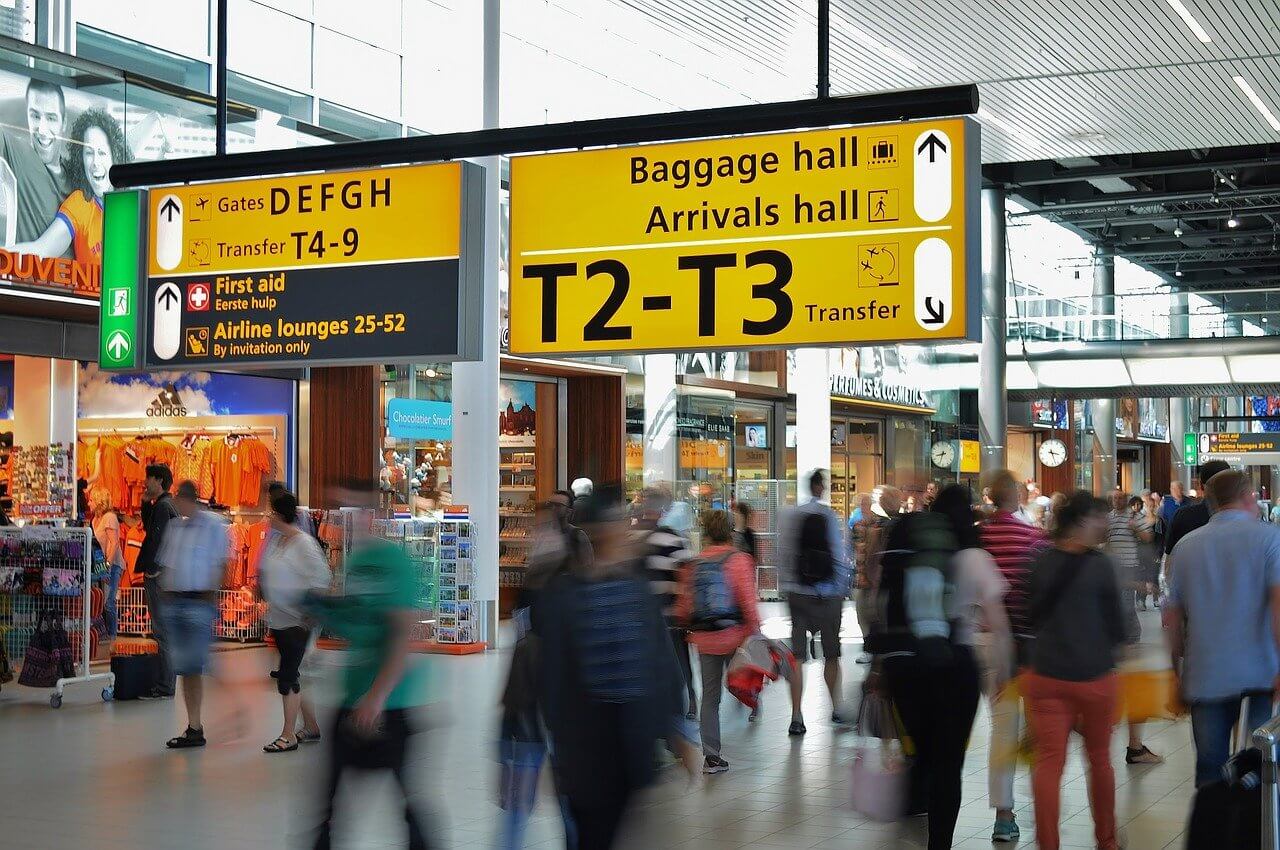
Travel restrictions in the pandemic
The changes caused by the corona pandemic affect many areas of life. Difficulties arise here
especially by traveling. To offer as much freedom of movement as possible, the EU-States have
agreed on a uniform procedure.
Therefore, the risk within the regions is determined by common criteria. The areas are divided into
the colours green, orange, red, dark red and grey. On this basis the member states can take
appropriate measures. These differs in individual case, so it is worth checking the legal situation
before entering the country. You can find information on entering the EU countries from the
following overview:
Austria: https://www.austria.info/en/service-and-facts/coronavirus-information/entry-regulations
Belgium: https://travel.info-coronavirus.be/public-health-passenger-locator-form
Bulgaria: https://coronavirus.bg/bg/
Crotaia: https://mup.gov.hr/uzg-covid/deutsch/286213
Cyprus: https://www.visitcyprus.com/index.php/en/cyprus-covid19-travel-protocol
Czech Republik: https://www.mvcr.cz/mvcren/article/coronavirus-information-of-moi.aspx
Denmark: https://um.dk/en/travel-and-residence/coronavirus-covid-19/
Estonia: https://www.visitestonia.com/de/uber-estland/coronavirus-and-travelling-to-estonia
Germany: https://www.auswaertiges-amt.de/en/einreiseundaufenthalt/coronavirus
Greece: https://gr.usembassy.gov/covid-19-information/
Hungary: http://abouthungary.hu/
Ireland: https://www.gov.ie/en/campaigns/75d92-covid-19-travel-advice/
Italy: http://www.salute.gov.it/portale/nuovocoronavirus/homeNuovoCoronavirus.jsp?lingua=english
Latvia: https://www.latvia.travel/en/article/covid-19-and-travelling-latvia
Lithuania: https://koronastop.lrv.lt/en/
Luxembourg: https://covid19.public.lu/en/travellers/visiting-luxembourg.html
Malta: https://www.visitmalta.com/en/covid-19
Netherlands: https://www.government.nl/topics/coronavirus-covid-19/tackling-new-coronavirus-in-the-netherlands/travel-and-holidays
Poland: https://www.gov.pl/web/coronavirus/travel
Portugal: https://www.visitportugal.com/en/content/covid-19-measures-implemented-portugal
Romania: https://chestionar.stsisp.ro/
Slovakia: https://korona.gov.sk/en/travelling-to-slovakia-and-covid19/
Spain: https://www.mscbs.gob.es/
Sweden: https://visitsweden.com/about-sweden/information-for-travellers-corona-virus/
There is no common European corona tracking app. A list with the national corona tracking apps: https://ec.europa.eu/info/live-work-travel-eu/coronavirus-response/travel-during-coronavirus-pandemic-0/mobile-contact-tracing-apps-eu-member-states_en
For travellers from third countries there are also travel restrictions. The commission recommends lifting of restrictions for Australia, New Zeeland, Rwanda, Singapore, South Korea, Thailand and China (in case of mutuality). Further residents of Andorra, Monaco, San Marino and Vatican has to be handled like EU-citizens.
During the corona pandemic the mobility in Europe and the world is highly limited. Therefore it makes sense to find out about the travel conditions on the official homepages before travelling.
Judgment of the EJC on passenger rights in shipping
The European Court of Justice clarified its decision from 2.9.2021 (C-570/19), that passenger would have to be given the choice in the case of a cancellation of whether they want to reach the destination by other means or have the fare reimbursed. In the opinion of the court, the regulation on passenger rights in sea and inland waterway transport (Regulation No. 1177/2010) also guarantees passenger rights even during shipping on the high seas and even when the ship is still in the shipyard.
The judgment was based on a dispute between the shipping company Irish Ferries and the National Transport Authority of Ireland. Irish Ferries had to cancel trips for months between Cherbourg in France and Dublin in Ireland, because an additionally ordered ferry was not delivered in time. Alternative ports or land transport were offered to passengers. According to the ECJ, this was not enough, and Irish Ferries must pay a compensation for the extra time that was necessary for the alternative transport.
The ECJ recognized the legal situation as follows: In case of cancellation of a shipping transport, the passenger has according to Art. 18 of the regulation the right for an alternative transport and according to Art. 19 of the regulation the right for compensation, the amount of which is based on the length of the delay. As an alternative, the passenger can have the fare reimbursed. The fact, that the ship was not delivered in time, does not establish any exceptional circumstances which allows a restriction of the rights of passengers.
The shipping company is now threatened with compensation claims. However, the ruling of the ECJ strengthens the right of the passengers.
UK Driving License Fraud
The Federal Court of Justice in Germany has sentenced a defendant in criminal proceedings for fraud in 37 cases and attempted fraud in nine cases to a total imprisonment of four years and three months. You can find the official press release at: http://juris.bundesgerichtshof.de/cgi-bin/rechtsprechung/document.py?Gericht=bgh&Art=pm&pm_nummer=0152/21.
The decision concerned a matter in which the defendant offered a successful brokerage of the English driver’s license for a fee of 1,200€ between the beginning of 2012 and the beginning of 2018. In doing so, he withheld from the contracting parties, that the issue of an English driving license requires a place of residence in England. Therefore, the customers did not receive an English driver’s license. For more information about the English driving license visit the official website: https://www.gov.uk/browse/driving/driving-licences
The Federal Court of Justice decided that the successful brokerage of the driver’s license for the payment of the fee was decisive for the customers. None of the customers received an English driver’s license due to the lack of a residence requirement. In the opinion of the court, the defendant knew this from the start. However, all that mattered to him was to permanently enrich himself with the fee interrogation. The court thus came to the decision, that the criminal offenses existed.
This fact shows that consumer should inform themselves about the requirements before entering a brokerage of foreign driving licenses to avoid fraud.
No compulsory insurance and license plate requirement for e-bikes
The European Council and the European Parliament have agreed to change the motor vehicle
insurance regulations to improve cooperation across the EU. In this context the parties also agreed
that e-bikes should continue to be exempt from the regulations. For more information visit the
homepage of the European Parliament:
https://www.europarl.europa.eu/news/de/press-room/20210617IPR06467/deal-reached-on-new- rules-to-better-protect-road-accident-victims
The original plan of the European Commission was to include e-bikes in the directive on motor
vehicle liability insurance. Until now it was not compulsory for drivers of e-bikes who do not driver
faster than 25 km/h to take out insurance.
The European Council and the European Parliament refrained from these plans. The reasoning of this
decision could have been the Argumentation by the European cyclist Foundation. They feared, that if
the use of e-bikes were regulated, cycling would become unattractive for many. Therefore, a clear
line should be drawn between bicycles (which include e-bikes) and motor vehicles. For more
information: https://ecf.com/news-and-events/news/cycling-associations-claim-victory-e-bikes-will- be-excluded-compulsory
As a result, nothing changes for the riders of e-bikes with the decision. There is no compulsory
liability insurance at EU level for e-bikes that drive a maximum of 25 km/h. Nevertheless, the
member states are free to issue their own rules. In addition, e-bikes riders can voluntarily take out
liability insurance.
No compensation for a hard flight landing
In its judgment of 12.5.2021, the European Court of Justice (ECJ) decided that a hard landing that led
to a herniated disc does not constitute an accident within the meaning of Art. 17 Montreal
Convention (C-70/20). The judges argued that the landing corresponded to the normal operation of
an airplane and the perception of the landing by the passenger as an unexpected event does not
allow any other assessment.
The parties involved in the proceedings were an Austrian woman, who suffered a herniated disc on
landing on the flight from Vienna to St. Gallen, and an Austrian airline. The plaintiff wanted to claim
damages of € 69,000 for her violation based on Art. 17 Montreal Convention. For this an accident
would have to have happened on board the aircraft. The airline defended itself, arguing that the
landing is part of the normal operation of the aircraft.
The lower Austrian courts already rejected a claim under Art. 17 Montreal Convention. The ECJ also
agreed. The judges assumed that the landing was a normal process of the flight, and that the
hardness of the landing was foreseeable due to the alpine location of the runway and therefore no
pilot error occurred. The result does not change if it is an unexpected event for the passenger.
The Montreal Convention is ratification by 137 parties. All members and the European Union itself
and further European states like the United Kingdom, Turkey, Switzerland, Norway, and the Balkan
states have ratified the Convention. Therefore, the case law of the European Court of Justice on Art.
17 Montreal Convention will also have an impact on passenger rights there. You can find all signature
states at: https://www.icao.int/secretariat/legal/List%20of%20Parties/Mtl99_EN.pdf
Short-haul flights will be banned in France in the future
The change in the law prohibits flights if rail alternatives could cover the trip in 2,5 hoers or
less. It only applies to a few domestic routes. The flight connections most affected are on the
one hand Paris and Nantes and Lyon and Bordeaux on the other. This ban is part of a
comprehensive legislative package on climate protection. The French national assembly has
already passed the law and in June the senate still must give its approval.
The criticism is that only domestic flights are affected. For example, short-haul flights from
France to neighbouring countries are not affected by the ban. Connecting flights are also not
covered by the amendment to the law. Nevertheless, with the short-haul ban, France is making
an important contribution to climate protection.
However, scepticism about the need for short-haul flight with regard to climate protection is
nothing new in Europe. Already in the 2019 European election campaign, proposals were
made to ban flights of less than 1,5000 kilometres. Even back then, there was agreement that
taking the train must be more attractive than flying over the short distance.
Since then, the restriction of short-haul flights has been an issue in European large-area
countries on the political agenda. For effective environmental protection, a uniform European
specification would make sense here.
Flying Taxis in Munich and Nürnberg
By 2025, electronic air taxis should start at German airports. The airports of Munich and
Nuremberg, but also other airports could serve as junction. The plan is to build a better
connection between the locations. The price level should be comparable to conventional
means of transport.
The planner is the German start-up lilium. The jets should have space for seven passengers.
They should start vertical and then fly horizontally up to 250 kilometres. The maximum speed
level should be 280 kilometres per hour. The serial production of the jets should start in 2025.
In the long term, the jets should be able to fly autonomously without a pilot.
Lilium is not the only company which has its focus on air-taxis. Also, the German
manufacturer Volocopter or the University RWTH Aachen have already completed flight tests
successfully. In addition, hydrogen air taxis are also planned, for example the Skai, developed
by Alaka’i Technologies and BMW.
The new vehicles play an important plan in urban city planning. We have already reported
about the plans of Paris to use air taxis at the Olympic games in 2024 and beyond that, set up
an air transport network by 2030: (Link von der Homepage)
These developments could establish a new way of mobility in Europe. Further the ambitions
of autonomous flying require a secure European digital infrastructure.
Higher fines for over speeding in Austria
To reduce the comparatively high number of traffic fatalities, the Austrian Minister of
transport Gewessler has presented the new catalogue of fines for over speeding. Not only
higher fees be considered, also the withdrawal of the driver’s license or the car. The new
regulations should apply from this summer.
For most offenses, there are only entry fines, the decision on the amount of the fines is made
by the authorities on a case-by-case basis. Specifically, this means that the maximum fine will
increase from 2.180€ to 5.000€. In addition, the observation period for repeated violations of
the speed limits doubles to four years.
The new rules for the withdrawal of the driver’s license will also become stricter. So far, the
authorization for drivers has been withdrawn if the speed was exceeded 40 km/h in town and
50 km/h out of town. The limit values are to be lowered by 10 km/h: 30 km/h in town and 40
km/h out of town. Furthermore, the duration of withdrawal will be doubled from two to four
weeks.
In addition to fines, the penalty for participating in illegal street races is also to be increased.
The participating becomes a particularly dangerous crime. There is a risk of the driver’s
license being withdrawn for at least six months and compulsory retraining and, in the event of
repetition, a traffic psychological examination. There is also a threat of the car being
confiscated. This is also possible in extreme cases when the driver was 80 km/h in town or 90
km/h out of town to fast.
The general speed limit in Austria for cars is 50km/h in town, 100 km/h out of town and 130
km/h on highways.
Increased additional fee in Hungary violates German ordre public
The decision from 4.2.2021 by the regional court in Munich (31 S 10 317/20) was rendered in a dispute over additional fees for unpaid road tolls. The Hungarian regulations provide, that users of the highways must buy a vignette. If they have not done it, they must pay a top-up fee which is five times higher than the basic price. When there is no payment within 60 days, an increased additional fee is owed. This one is again four times higher than the top-up fee. The appeal court only has to check the last fee for its legitimacy.
It was initially unproblematic that the defendant only rented the car and did not drive it itself. The court in Nürnberg-Fürth has already ruled at 30.7.2019, that owner liability does not violate the ordre public (16 S 9176/18). A violation of domestic basic principles fails because German civil law also includes owner liability.
In the second point, that the court had to determine was according to which regulation the applicable law is to be assessed. It firmly decided that contrary to the plaintiff’s opinion, there was no contractual relationship between claimant and the vehicle rental company. The driver did not act on behalf of the defendant and the fact that the rental car company has not done anything to prevent a further journey after the first payment requests have been received does not establish a contractual relationship. As a result, the Rom II regulation is applicable.
Within this the question arose whether there is a violation of Art. 26. This is the case with claims for damages if they go much further than necessary to adequately compensate the injured person or obviously serve purposes other than adequate compensation for the injured person. The German court arguments that there is a violation of Art. 26 Rom II regulation. By that the increased additional fee is four times higher than the top-up fee, which itself is just as five times higher than the basic charge, no connection to the actual damage can be identified. According to this line of reasoning, the additional fee is not enforceable at a German court.
The judgment is not yet final and can still be reviewed by the German high court.
Italy: no compensation for the passengers?
Bad news for those traveling on a car involved in a road accident in Italy without fault of its driver: in these cases, the passenger is not entitled to compensation for damage by the insurance of the vehicle on which he was located.
In the decided case, the injured person was on board a car that was hit by another vehicle, coming from the opposite direction, whose driver had made a risky overtaking, losing control of the vehicle. In the impact, this passenger had suffered personal injuries and had requested compensation from the insurance of the vehicle he was traveling on.
But the judge from Taranto declared that the request is inadmissible, referring to a sentence of the Cassation Court, according to which the compensation obligation is excluded for "fortuitous events" as the full liability of other car drivers.
Unfortunately, this restrictive literal reading of the law by Italian courts leads to an unreasonable disadvantage for passengers, especially for passengers injured in a foreign car, since they will not get direct compensation from their domestic insurer, when Italian law is applied.
Read more: https://lnkd.in/dpg73Gk
The EU driving licence and its validity
Since the foundation of the European Union (EU), the member states have been striving to achieve a convergence of their directives and laws. This also applies in the area of road traffic law. In the course of harmonisation the EU driving licence was created.
The legal basis is the third driving licence directive of the European Union. The directive intends to reduce the high number of different driving licence documents within the EU and helps the authorities to check the licence of foreign drivers without much effort.
In principal EU member states are obliged to recognise driving licences issued in other European countries. However, this principle does not apply to all EU licences. The authorities can also check retrospectively whether the licence is valid at all. It is e.g. invalid if the holder of the licence had not registered his main residence in the relevant country at the time of acquisition.
Furthermore the ECJ has declared a licence invalid if it was lawfully acquired in another EU country but was issued at a time when no driving licence should have been displayed domestically because of a final conviction. This was also recently the decision of the Administrative Court of Trier in Germany in a case in which a German citizen had his licence revoked for intentional drunk driving. Beyond that the Administrative authority declared not to issue a driving licence before the expiry of one year. Thereupon the plaintiff took his driving test in Luxembourg and started to drive on German roads again. The court ruled contrary to the view of the ECJ that the licence also does not become effective through the expiry of the suspension.
Despite harmonisation under EU law the validity of EU driving licences is limited by specific exceptions. Traffic offenders must take care not to drive during the ban period, otherwise they will be liable to prosecution.
Read more: https://www.bussgeldkatalog.org/eu-fuehrerschein/; https://vgtr.justiz.rlp.de/fileadmin/justiz/Gerichte/Fachgerichte/Verwaltungsgerichte/Trier/Dokumente/Entscheidungen/1_L_31_21_TR_Beschluss.pdf; https://lexetius.com/2008,1498
Foreign EU driving licence does not have to be recognised after mere renewal following domestic driving ban
The facts
A German citizen with normal residence in Spain and a Spanish driving licence was denied the right to drive a motor vehicle in Germany with this licence after driving under the influence of alcohol in Germany. The German authorities ordered a 14-month ban during which he was not allowed to apply for a new driving licence. During the ban period and also several times later, the Spanish authorities renewed the driving licence and issued him with new documents. Finally, the original plaintiff applied for recognition of the validity of his Spanish driving licence for the federal territory.
No acceptance of renewed driving licence
The German driving licence authority refused to recognise the renewed driving licence because the requirements provided for in German law for regaining the right to drive in Germany, namely the submission of a medical-psychological certificate after driving under the influence of alcohol, were not met. The plaintiff's action was unsuccessful in the first instance as well as in the appeal instance. The Federal Administrative Court then appealed to the ECJ for a preliminary ruling. With its question, it wanted to know whether the German authorities had to recognise the validity of the renewed driving licence in a case such as the present one.
Distinction between issuing and renewing a driving licence
The ECJ also ruled against the plaintiff and confirmed that the German driving licence authority does not have to recognise the validity of the renewed driving licence. This is because, in contrast to the issuing of a driving licence, the Member States are not obliged to check the driving ability in the case of the simple renewal of a driving licence. However, the holder of the driving licence must be able to prove - after the expiry of a possible ban period - that his ability to drive was the subject of an examination at the time of the renewal of that driving licence. This examination must correspond to the medical-psychological examination ordered by the German driving licence authority.
No endorsement of driving bans on foreign driving licences
Ultimately, the ECJ ruled that a Member State may not put an endorsement of a driving ban on a driving licence issued in another Member State, because endorsements on driving licences fall under the exclusive jurisdiction of the Member State in which the holder has his normal residence. However, he is free to contact the Member State of residence with a request to affix such an endorsement. In addition, the Member State of temporary residence may check whether the person concerned has been banned from driving on its territory, for example by electronic interrogation during a traffic check on its territory.
The verdicts: https://curia.europa.eu/juris/document/document.jsf?text=&docid=240543&pageIndex=0&doclang=DE&mode=req&dir=&occ=first&part=1;
https://curia.europa.eu/juris/document/document.jsf?text=&docid=240545&pageIndex=0&doclang=DE&mode=req&dir=&occ=first&part=1
Read more: https://rsw.beck.de/aktuell/daily/meldung/detail/eugh-anerkennung-auslaendischen-eu-fuehrerscheins-erneuerung-nach-inlandsfahrverbot
European Court of Auditors reprimands disregard for passenger rights in the pandemic
The European Court of Auditors has made it clear that issuing coupons in the event of flight cancellations massively violates consumers' rights.
The facts
During the pandemic, around 7,000 flights were cancelled between March 2020 and March 2021. Millions of travellers were affected and according to the auditors unlawfully forced to accept vouchers instead of refunds for cancelled flights. Although the airline industry received billions in state aid between March 2020 and April this year.
Partial guilt of the federal government?
The German Air Transport Association defends its action by saying that it was an "absolutely special situation". Compared to the previous year, the number of passengers plummeted by 99 per cent and the number of flights by 88 per cent. The companies suffered correspondingly great hardship. The association has also partly blamed the federal government for the legal breaches. The latter had considered vouchers permissible instead of refunds due to the pandemic.
According to the Court, 15 EU states, including the Netherlands, France and Belgium, had even helped in the process by adopting EU-unlawful rules by exempting airlines and tour operators from the obligation to compensate passengers for cancelled flights. In some cases, these vouchers were not even protected against the insolvency of the companies.
Consequences
Against this background, the EU Commission reprimanded the airlines and presented a list of demands: In it, the airlines are urged not to advertise refunds in the form of a voucher as the only choice and to avoid delays in repayment. In addition, new rules are being considered with a view to future crises.
The Court's rebuke is to be welcomed. In view of the state aid, the air industry was quite capable of refunding the money. The consideration of new consumer-friendly regulations will help to protect passengers' rights more extensively.
Report of the Court of Auditors: https://www.eca.europa.eu/Lists/ECADocuments/SR21_15/SR_passenger-rights_covid_DE.pdf
Read more: https://www.zeit.de/mobilitaet/2021-06/eu-rechnungshof-bericht-rechtsverletzung-fluggaeste-corona-pandemie
The Netherlands issues new catalogue of fines 2021
Motorists should drive adapted in the Netherlands. The reason for this is i.a. the new catalogue of fines 2021, which provides higher fines for traffic offenders.
The new catalogue confirms that the overall penalty rates in the Netherlands are significantly higher than in other European Member States. Thus, it specifies that for parking and stopping offences, a fine of 100 euros (previously 95) must be paid if the offence is punished by the police. For penalties imposed by the municipality a fine of 60 euros (previously 50) will be ordered. Red light violations will be reproved with 250 euro (before 240). The same applies to driving over solid lanes and phone calls at the wheel without a hands-free device.
Increases were also made for speeding offences. Traffic offenders will be fined upwards of 30 euros, if they exceed the speed limit of 5 km/h in towns, out of towns and on motorways. Transgressing the speed limit by more than 30 km/h they will even be reported to the police.
Moreover, the authorities will impose sanctions for late payment. If the fine is not paid despite being due, the amount will increase by half due to the first delay and by double due to the second one.
Even if the catalogue of fines has not changed seriously, the accruing amounts might deter road users from committing offences and encourage them to behave in accordance with the regulations. Citizens of other European Member States should be aware of the fact, that the penalty can also be enforced in their home state.
Read more: https://www.adac.de/reise-freizeit/reiseplanung/reise-sicherheit/niederlande-bussgeld/
Germany: New Catalogue of fines from 9 November 2021
The Federal Council has approved the new Ordinance on the Catalogue of Fines (BKatV). The new BKatV was published in the Federal Law Gazette on 19 October 2021. The penalties have been drastically increased in many cases.
It will therefore come into force on Tuesday, 9 November 2021 at 0:00 hours:
- Offences up to and including Monday, 8 November 2021 23:59 hrs. will therefore still be punished according to the old catalogue of fines.
- Offences committed after Tuesday, 9 November 2021 at 0:00 hrs. will then be punished in accordance with the new regulation on the catalogue of fines.
For more information: https://www.adac.de/news/einigung-bussgeldkatalog/
VICTIM´S Rights
United Nations - Vereinte Nationen
Economic and Social Council - Wirtschafts- und Sozialrat
Economic Commission for Europe - Wirtschaftskommission für Europa
Inland Transport Committee - Ausschuss für Binnenverkehr
Global Forum for Road Traffic Safety - Globales Forum für Sicherheit im Strassenverkehr
Eighty-second session - Zweiundachtzigste Session
Geneva, 8-12 March 2021 - Genf, 8.-12. März 2021
ECE/TRANS/WP.1/2021/1 - ECE/TRANS/ARBEITSGRUPPE.1/2021/1
Charter of Road Traffic Victims’ Rights
Charta der Rechte von Strassenverkehrsopfern
Original: English - Deutsche Übersetzung
I. Preamble - I. Präambel
1. This Charter is a joint initiative of the secretariat of the United Nations Economic Commission for Europe (UNECE Secretariat), the Institute for European Traffic Law (IETL) and the Council of Bureaux (CoB).
1. Diese Charta entstand aufgrund einer gemeinsamen Initiative und Zusammenarbeit des Sekretariats der Wirtschaftskommission der Vereinten Nationen für Europa (UNECE-Sekretariat), des Instituts für Europäisches Verkehrsrecht (IETL) und des Council of Bureaux (CoB).
2. Defining the victim’s rights presupposes a good level of cooperation between the victim and the entity which is responsible for compensating the victim. Such cooperation depends on good faith and cooperation by all parties. Any fraudulent intention and/or behaviour by any party will jeopardise the good relationship between the parties.
2. Die Definition der Rechte eines Verkehrsopfers setzt ein gutes Mass an Zusammenarbeit zwischen dem Verkehrsopfer und der Stelle voraus, die für die Entschädigung des Verkehrsopfers zuständig ist. Eine solche Zusammenarbeit hängt von Treu und Glauben und der Kooperation aller Parteien ab. Jede betrügerische Absicht und/oder jedes betrügerische Verhalten einer Partei gefährdet die gute Beziehung zwischen den Parteien.
3. It is hoped that the principles recommended in this Charter will be applied to domestic (intra-national) and cross-border (international) road traffic accidents. This Charter – believed to be the first of its kind - is intended to raise awareness of the rights of road traffic victims, and to provide a general framework for a timely and transparent claims handling process.
3. Es ist zu hoffen, dass die in dieser Charta empfohlenen Grundsätze sowohl auf inländische (innerstaatliche) als auch auf grenzüberschreitende (internationale) Strassenverkehrsunfälle angewendet werden. Diese Charta - wohl die erste ihrer Art - soll das Bewusstsein für die Rechte von Verkehrsopfern im Strassenverkehr schärfen und einen allgemeinen Rahmen für eine zeitnahe und transparente Schadensabwicklung bieten.
4. The Charter does not intend to legislate in whole or in part. It does not affect national or international sources of law in any way. The Charter is intended to be a code of conduct for all those involved in the compensation of road traffic victims. Often a claim is handled correctly from a legal point of view, but the way in which the compensation is settled can still be questionable. This should be avoided by a correct and respectful behaviour of all involved parties.
4. Die Charta beabsichtigt nicht, Rechtsvorschriften im Ganzen oder in Teilen zu erlassen. Sie berührt in keiner Weise nationale oder internationale Rechtsquellen. Die Charta soll ein Verhaltenskodex für alle sein, die an der Entschädigung von Verkehrsopfern beteiligt sind. Oft wird ein Schaden zwar rechtlich gesehen korrekt abgewickelt, aber die Art und Weise der Entschädigungsabwicklung kann dennoch fragwürdig sein. Dies soll durch ein korrektes und respektvolles Verhalten aller Beteiligten vermieden werden.
II. Principles - II. Grundsätze
5. Principle 1: A victim of a road traffic accident is any person, natural or legal, suffering material or non-material damage and/or personal injury, resulting from the use of a motor vehicle in road traffic.
5. Grundsatz 1: Verkehrsopfer ist jede natürliche oder juristische Person, die einen materiellen oder immateriellen Schaden und/oder einen Personenschaden erleidet, der sich aus der Benutzung eines Kraftfahrzeugs im Strassenverkehr ergibt.
6. The victim should be entitled to receive compensation in the event that damage or injury has been caused by a person or persons contravening traffic rules in operation at the time of the accident. Ideally, the right to be compensated should also include damage which is not the result of negligence or fault on the part of the driver and which has been caused solely as a result of the operation of the vehicle in traffic.
6. Ein Verkehrsopfer soll Anspruch auf Entschädigung haben, wenn der erlittene Sach- oder Körperschaden durch Verletzung von zum Zeitpunkt des Unfalls geltenden Verkehrsregeln verursacht wurde. Idealerweise sollte sich der Anspruch auf Entschädigung auch auf Schäden erstrecken, die nicht auf Fahrlässigkeit oder Verschulden des Fahrers zurückzuführen sind und die allein durch den Betrieb des Fahrzeugs im Verkehr verursacht wurden.
7. The victim may lose the right to receive compensation, whether fully or partially, through his or her own fault or negligence.
7. Das Verkehrsopfer kann den Anspruch auf Entschädigung ganz oder teilweise verlieren, soweit ihm eigenes Verschulden oder eigene Fahrlässigkeit vergeworfen werden kann.
8. Principle 2: The victim should not only be able to address a claim to the person violating the traffic rules or – if based on the operational risk of the use of a motor vehicle – to its keeper. If an entity (“the compensator”) was established by law to offer full or partial compensation for damage resulting from the use of a motor vehicle in road traffic, the victim should also be able to address the claim to such entity under the conditions of the applicable law.
8. Grundsatz 2: Das Verkehrsopfer sollte seinen Anspruch nicht nur gegen die Person richten können, die gegen die Verkehrsregeln verstossen hat, oder - wenn der Unfall auf die Betriebsgefahr eines Kraftfahrzeugs zurückzuführen ist - gegen dessen Halter. Wenn das Gesetz eine Einrichtung («der Entschädiger») vorsieht, die geschaffen wurde, um vollständigen oder teilweisen Schadenersatz zu leisten, soweit der Schaden durch die Nutzung eines Kraftfahrzeugs im Strassenverkehr verursacht wurde, sollte der Geschädigte den Anspruch im Rahmen des geltenden Rechts auch an diese Einrichtung richten können.
9. Principle 3: The victim should be given the statutory maximum period to present the claim and the evidence related to the claim.
9. Grundsatz 3: Das Verkehrsopfer sollte den Anspruch und die mit dem Anspruch verbundenen Beweise innert der gesetzlichen Maximalfrist einreichen können.
10. Principle 4: The victim’s claim should be handled pro-actively, diligently and respectfully. Within an appropriate time period the victim should receive information about the process by which the claim will be handled and by whom.
10. Grundsatz 4: Der Anspruch des Verkehrsopfer soll sowohl proaktiv, als auch sorgfältig und respektvoll behandelt werden. Das Verkehrsopfer soll sodann innerhalb eines angemessenen Zeitraums auch Informationen darüber erhalten, wie und von wem der Anspruch bearbeitet wird.
11. Principle 5: The victim and/or their duly appointed representative(s) should be treated with fairness, dignity, respect and empathy, with due care for the situation in which the victim may be in after the road traffic accident, whilst respecting the rights of the compensator or tortfeasor.
11. Grundsatz 5: Das Verkehrsopfer und sein ordnungsgemäss bestellter Vertreter sollen mit Fairness, Würde, Respekt und Einfühlungsvermögen behandelt werden. Dabei soll die Situation, in der sich das Verkehrsopfer nach dem Verkehrsunfall befindet, gebührend berücksichtigt werden. Andererseits gilt es, auch die Rechte des Entschädigers oder Schädigers zu beachten.
12. The victim should receive a reasoned response regarding the acceptance or the partial or total rejection of the claim.
12. Das Verkehrsopfer soll eine begründete Antwort über die Annahme oder die teilweise oder vollständige Ablehnung des Anspruchs erhalten.
13. Principle 6: The victim should have the opportunity to be heard in the claims handling process. The compensator should provide a reasoned reply to the victim’s claim within a reasonable timescale, explaining in particular the reasons for any partial or total rejection of the claim.
13. Grundsatz 6: Das Verkehrsopfer soll bei der Bearbeitung seiner Ansprüche angehört werden. Der Entschädiger soll sodann innerhalb eines angemessenen Zeitraums eine begründete Antwort auf den Schadenersatzanspruch des Verkehrsopfers abgeben und dabei insbesondere die Gründe für eine teilweise oder vollständige Ablehnung des Antrags erläutern.
14. Principle 7: The victim should receive advance payments and/or interim payments on account of damages from the compensator if liability is determined but the compensation is not yet fully quantified. The advance payments should ideally cover the damage or injury that has already been suffered and that is not compensated by any other entity.
14. Grundsatz 7: Das Verkehrsopfer soll vom Entschädiger Vorauszahlungen und/oder Abschlagszahlungen auf den Schadenersatz erhalten, wenn die Haftung festgestellt ist, der Schadenersatz aber noch nicht vollständig beziffert werden kann. Die Vorschusszahlungen sollten idealerweise die erlittenen Nachteile des Sach- oder Körperschadens abdecken, soweit eine Entschädigung nicht bereits von Dritter Seite erfolgte.
15. Principle 8: The victim should be offered reasonable time for reflection before accepting or refusing a proposal for settlement of the claim, during which the victim may seek independent professional advice prior to making a decision.
15. Grundsatz 8: Dem Verkehrsopfer soll eine angemessene Bedenkzeit zur Annahme oder Ablehnung einer Schadenersatzofferte eingeräumt werden. Während dieser Zeit kann das Opfer unabhängigen professionellen Rat einholen, bevor es eine Entscheidung trifft.
16. The victim’s rights should not be compromised by any obvious incorrect or insufficient compensation. If compensation is due to the victim, the compensation should be paid on time and in full accordance with the applicable law.
16. Die Rechte des Verkehrsopfers dürfen nicht durch eine offensichtlich falsche oder unzureichende Entschädigung beeinträchtigt werden. Wenn dem Verkehrsopfer eine Entschädigung zusteht, sollte die Entschädigung pünktlich und in voller Übereinstimmung mit dem geltenden Recht ausbezahlt werden.
17. Principle 9: The victim’s right to compensation should not be affected by contractual clauses between the driver, keeper of the vehicle or any other tortfeasor on the one hand and their insurer on the other that may reduce the latter’s obligations vis-à-vis the insured.
17. Grundsatz 9: Die Rechte des Verkehrsopfers auf Entschädigung dürfen nicht durch Vertragsklauseln zwischen dem Fahrer, dem Halter des Fahrzeugs oder einem anderen Schädiger einerseits und ihren Versicherern andererseits beeinträchtigt werden, welche die Verpflichtungen der Versicherer gegenüber den Versicherten verringern könnten.
18. Principle 10: The victim should have due access to a court or any other neutral entity, in order to receive an independent assessment of his/her rights according to applicable legislation.
18. Grundsatz 10: Das Verkehrsopfer soll ordnungsgemässen Zugang zu einem Gericht oder einer anderen neutralen Stelle haben, um eine unabhängige Beurteilung seiner Rechte gemäss den geltenden Rechtsvorschriften zu erhalten.
The rights of the victims described in the above-mentioned principles presuppose an honest and non-fraudulent intention and behaviour of the victim. They will not apply in a case where it can be determined that the victim has not acted in good faith. To the extent of what is possible (and taking into consideration the victim’s injuries), the victim should show a cooperative and reasonable attitude during the claims handling process.
Die in den oben genannten Grundsätzen beschriebenen Rechte des Verkehrsopfers setzen eine ehrliche und nicht betrügerische Absicht und ein entsprechendes Verhalten des Verkehrsopfers voraus. Sie gelten dann nicht, wenn festgestellt werden muss, dass das Verkehrsopfer nicht in gutem Glauben gehandelt hat. Im Rahmen des Möglichen (und unter Berücksichtigung eines allenfalls erlittenen Personenschadens) soll das Verkehrsopfer während des Schaden-bearbeitungsprozesses eine kooperative und vernünftige Haltung zeigen.
III. Epilogue - III. Epilog
19. For decades, the United Nations has been striving to reduce the number of road accidents worldwide. However, preventive road safety measures alone have not been able to prevent over a million traffic accidents each year around the world.
19. Seit Jahrzehnten bemühen sich die Vereinten Nationen, die Zahl der Verkehrsunfälle weltweit zu reduzieren. Doch präventive Verkehrssicherheitsmassnahmen allein konnten bisher nicht verhindern, dass sich jedes Jahr weltweit über eine Million Verkehrsunfälle ereignen.
20. The UNECE Secretariat, the IETL and the CoB wish to improve the post-accident situation of the affected victims or, in the event of death of the victims, their families, by alleviating the damage and pain suffered through the proposed application of ten principles concerning road traffic victims' rights as contained in this Charter.
20. Das UNECE-Sekretariat, das IETL und der CoB möchten die Situation der betroffenen Verkehrsopfer oder, im Falle des Todes des Verkehrsopfers, ihrer Familien nach dem Unfall verbessern. Die erlittene Unbill soll durch die Anwendung der zehn Charta-Grundsätze der Rechte von Verkehrsopfern gemildert werden
21. The principles are not an exhaustive code of conduct, but rather an appeal to provide the best possible assistance to road accident victims in their post-accident situation and to give them - or in the event of death, their surviving dependants - quickly and fairly what they deserve: a decent and respectful way of dealing with each other in meetings and a common path of compensation negotiations. A fair and, in all respects, appropriate compensation should be the goal of this approach, in order to provide solace for the injustice suffered by the victim or his or her survivors.
21. Die Grundsätze sind kein abschliessender Verhaltenskodex, sondern ein Appell, den Verkehrsunfallopfern in ihrer Situation nach dem Unfall bestmöglich zu helfen und ihnen - oder im Todesfall ihren Hinterbliebenen - schnell und fair das zu geben, was ihnen zusteht: Es soll in allen Gesprächen und Entschädigungsverhandlungen ein anständiger und respektvoller Umgang miteinander gepflegt werden. Mit einer fairen und in jeder Hinsicht angemessenen Entschädigung soll beabsichtigt werden, das vom Verkehrsopfer erlittene Unrecht - oder das seiner Hinterbliebenen - zu lindern.
The European organisation acting for the protection of cross-border road traffic victims is The Council of Bureaux (CoB)
The CoB operates under the United Nations’ aegis and also cooperates with the EU Institutions to improve the free movement of vehicles and the settlement of internal motor accident claims but it has no political or lobbying purpose. The CoB Secretariat is located in Brussels.
The Council of Bureaux is the Managing Organisation of the Green Card system and the Motor Insurance Directives. in the Green Card System 47 National Insurers’ Bureaux representing more than 1500 motor insurers in 48 countries in Europe, North Africa and the Middle East.
Read More: https://www.cobx.org/
The Green card System:
(Source: CoB)
Read More: https://www.cobx.org/sites/default/files/cob_file_folder/2018-Brochure-Web-Version-FINAL.pdf
The EU Motor Insurance Directive (2009/103/EC)
The EU Motor Insurance Directive (2009/103/EC) further enhanced the system of the protection of victims implemented within the European Economic Area (= 28 European Union Members + Iceland, + Liechtenstein, + Norway).
The EU Motor Insurance Directive System:

(Source: CoB)
Read More: https://www.cobx.org/sites/default/files/cob_file_folder/2018-Brochure-Web-Version-FINAL.pdf
The comparison between Green Card System and Eu Directive:

(Source: CoB)
Read More: https://www.cobx.org/article/2/who-are-we
ARTIFICIAL INTELLICENCE
Autonomous driving
EU Comparative Law Study AI 2021
This study will analyse how damage caused by artificial intelligence (AI) systems is allocated by the rules of tortious liability currently in place in the EU, and whether – and if so to what extent – the national tort law regimes differ in that respect.
Via remote control to autonomous driving
Now it is public: For two years, the Berlin-based start-up Vay has been secretly driving cars remotely through Berlin. The aim is to launch a new type of taxi service and have the first fleet without a driver in the car on European roads in 2022.
Co-founder and CEO Thomas von der Ohe calls it “teleride”. Customers can order a vehicle via an app, which then drives up to them remotely. The customer then takes the wheel and drives to their destination. Once they arrive at their destination, they can hand the car back to a teledriver, without having to search for a parking space.
Teledrivers sit in a replica cockpit with driver's seat, steering wheel and accelerator pedal in the headquarters of Vay and only see the road they are driving on through cameras. Three screens show the immediate surroundings of the vehicle at a 360-degree angle. The teledriver hears what is being said in the car and what sounds can be perceived around it. According to Ohe, this is enough to brake, accelerate and know whether they can turn left.
In the future, it will be possible to drive autonomously on well-marked and clear stretches of road. In difficult situations, the teledriver should take over. At present, however, Vay is not allowed to jet along the motorway by remote control.
In the future, Vay wants to grab market share not only in the taxi and rental car business, but also in trucking - and offer customers an alternative to buying their own car. To what extent the business model will contribute to the further development of autonomous driving remains to be seen. In any case, it promotes the market entry of driverless technology in the near future.
German Law for autonomous driving
The German law on autonomous driving came into force on July 28th. With this act, the legal framework was created so that autonomous driving of level four specified operating areas in public road traffic is possible in regular operation. An overview about the different levels of autonomous driving can be found at the homepage of the European Parliament: https://www.europarl.europa.eu/news/en/headlines/economy/20190110STO23102/self-driving-cars-in-the-eu-from-science-fiction-to-reality
As the Ministry of Transport and Digital Infrastructure (BMVI) reports, Germany will be the first country in the world which allows autonomous cars at the road in everyday life independent from any research project. The act allows the use of autonomous driving only for specific vehicles, for example Shuttle-traffic or People-Mover. It also regulates the conditions under which use is permitted. You can find more information at: https://www.bmvi.de/SharedDocs/DE/Artikel/DG/gesetz-zum-autonomen-fahren.html
This act is only a part of the German plan to get a pioneering role in the field of autonomous driving. Already on June 21th 2017 the act for autonomous driving, which regulates the autonomous driving at level three, came into force. Furthermore, Germany enables many different research and development projects for autonomous driving. An Overview of the innovation’s projects can be found at: https://www.testfeldmonitor.de/Testfeldmonitoring/DE/Home/home_node.html
With the different measures Germany want to become a role model for innovation in the field of autonomous driving. The law on autonomous driving is only intended to serve as a transitional solution until uniform standards have been adopted at international level. The BMVI has therefore advocated international standards so far and will continue to do so in the future.

